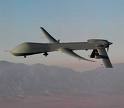Unmanned drones used within UK civil airspace: Who is ensuring that the public’s privacy and civil liberties are protected?

31/12/2011
Aerovironment Wasp III – one of drones being flown in UK civil airspace
Analysis of information received in response to a series of Freedom of Information requests to the Civil Aviation Authority (CAA) has revealed that around fifty to sixty companies and public bodies per year are being granted “blanket permission” to fly unmanned drones within UK civil airspace. With very few exceptions each flight must remain under 400 feet and within 500 metres of the operator.
While names of companies and institutions who have been granted permission to fly drones has not been revealed, the type of work being undertaken includes aerial photography and filming, surveying of buildings and land, emergency services work, and surveillance in support of law enforcement, data collection, evidence gathering and security.
The Civil Aviation Authority grants three types of ‘permissions’ to fly unmanned aircraft : a) permission for a one-off flight, b) permission for a series of flights in a limited time frame, or c) blanket permission which must be renewed on an annual basis.
The CAA has told Drone Wars UK that out of the 100 applications submitted between January 2010 and September 2011, 98 blanket permissions were issued. With one exception all the applications were for drones weighing less than 20kg. While in the time frame many of the 98 applications will have been renewals a conservative estimate is that around fifty to sixty companies and public bodies are regularly flying unmanned drones in UK civil airspace.
Chris Cole of Drone Wars UK said: “I expected to find that the CAA would have mostly granted one-off permissions to fly drones in UK airspace, with perhaps a handful of blanket permissions granted each year. However around ten times the number of blanket permissions are being granted. Once this blanket permission has been granted, who monitors what these companies are doing with their drones?”
Some work being undertaken by these drones seems fairly innocuous, including application for tasks such as “surveys for geography, environment and archaeological survey” and “data gathering for insurance, building surveys, health and safety etc.“ The majority of applications however, contain little real information about the work being undertaken with “stills & video photography from the air” and “aerial photography & video” being common. Occasionally other types of work are mentioned such as: “evidence gathering, surveillance and search” and “surveillance in support of UK law enforcement.”
While the CAA are responsible for ensuring that these unmanned flights within UK civil airspace are flown safely, who is ensuring that the public’s privacy and civil liberties are protected?


